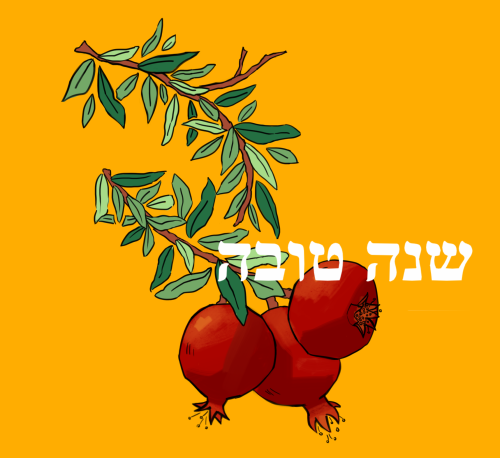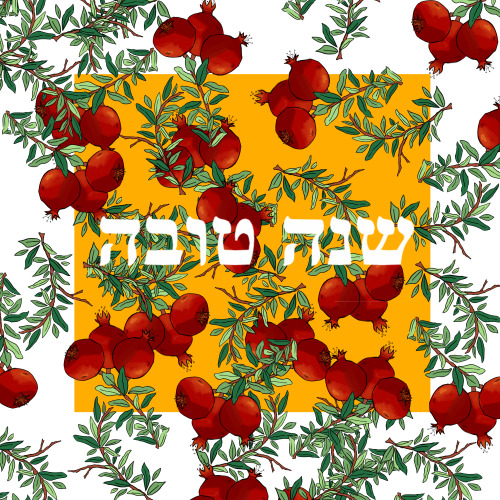I Am Genuinely Scared For The Next Two Weeks.
I am genuinely scared for the next two weeks.
It is the high holidays and almost the anniversary of Oct 7th.
Antisemitic attacks and incidents across the diaspora always increase during every major jewish holidays. Then there is the possibility of attacks on the anniversary of Oct 7th. I've already seen people across the world post flyers of planned protests on Oct 7th. Considering how so many past protests devolved from protests for palestine into targeting and/or attack jews, there is a decent chance that with high emotions from the anniversary some of these protests will end up harming jews. In stockholm the Israeli embassy was shot at earlier today.
And in Israel, terrorist groups and Iran love attacking Israel near the holidays + again anniversary of Oct 7th is coming up. It is not lost on me that in Israel it's Erev Rosh Hashanah tomorrow and Iran launched its attack earlier today as well as the terrorist attack in Jaffa.
I hope everyone is safe over the next two weeks
More Posts from Rowenavictoria and Others

Adieu Alain Delon, an icon of french cinema and one of the most handsome men to exist (1935-2024).

Happy Mid-Autumn & Sukkot to my fellow Chinese-Jewish households! 🥮🌿🍋🌕


Feels like a cruel joke that the October 7th anniversary falls between Rosh Hashanah and Yom Kippur. And 101 hostages still aren’t home.
I’m slowly realising that almost nobody thinks that antisemitism is a real problem. They only think nazis are a problem (if that even), because they were conditioned to hate them.
But they don’t consider their own antisemitism to be antisemitism - they just consider it to be common sense, or justified political activism!
So I've been hearing that there shouldn't be a country for the jews, that it should be like "other countries" and "be for everyone".
Ok, so your country that has separation of church and state, which days are the work week?
Mon-Fri? Huh? Why is that? Maybe to make it so people won't work on Sundays, and then, go to church?
In Israel, the work week is Sun-Thu. I don't know if Americans even know that.
Friday night to Saturday night is the Sabbath, so having these days off make it easier to observe.
Muslim countries, usually, have the workweek be Sat-Wed for similar reasons.
People are so stuck on their American Defaultism that they forget that so many things are structured on purpose to benefit different people.
So when people say that Israel should be abolished and there should be a "neutral secular state", what they mean is that it should be more like what they consider the "normal" and "default".
They act like there is a "one size fits all" culture, that anything else is some perversion for the ideal of what a country should be.
That's just one of many many things, cultural and religious, that makes Israel the only place in the world where jews can live without being an afterthought.
I have a lot of problems with Israel.
So many, many problems, especially with the government, and with what's to come with Trump's victory.
I genuinely hope for a change, for the end of suffering, for lasting peace and justice.
But I'm so done with people that have their country built to suit them telling me mine shouldn't exist.

shana tova my jews!!! love you all!
may the new year be sweet, peaceful, and full of blessings for all of you. 💙💙💙 may you be inscribed in the book of life!! l’shanah tovah tikateivu v’teichateimu!!
and thank hashem for the idf and israel 🇮🇱
we will dance again.
עם ישראל חי!!!

From Hans Andersen’s Fairy Tales, illustrated by Frank C. Papé, 1912.

Aurora (Arshaluys) Mardiganyan was just 14 when the sky collapsed on her head. In 1915, as the Armenian Genocide began, her village was torn apart by turkish soldiers. She watched as her father, her brothers and all the men in her family were dragged away and murdered. The women and children, including Aurora, were spared only to be marched into the desert—a death sentence of a different kind.
The march was relentless. Day after day, Aurora trudged through the searing heat, surrounded by the dying and the dead. There was no food, no water—just the constant, gnawing hunger, thirst and sexual mutilation. Those who fell behind were shot or left to die under the unrelenting sun. Aurora witnessed countless mothers cradling their dying children, their bodies wasting away before her eyes. The air was thick with the stench of death, and the ground was littered with the bodies of her people, unburied, forgotten.
According to her story, the turkish soldiers decided to nail the 17 girls of her village in the group to crosses—in a grotesque parody of their Christian faith, but they miscounted and only constructed 16 crosses; Aurora was the lucky one who was not crucified.
She endured much, being sold into a harem as a teen, for 85 cents. She was beaten, assaulted and dehumanized in ways no child should ever endure. Aurora’s spirit was broken over and over again, yet somehow, she survived.
When she finally escaped, Aurora found her way to the United States, carrying the weight of what she had witnessed. She was alone, orphaned by genocide, but she was determined to tell the world what had happened. Her story, Ravished Armenia, recounted the horrors in graphic detail—images too painful for most to even imagine. But for Aurora, they were not just stories; they were the memories that haunted her every day.
She agreed to relive her trauma once more, acting in the film Auction of Souls, where she portrayed her own suffering and the atrocities she had witnessed. But even then, Aurora was exploited. The people behind the film saw her pain as a commodity, and she was never properly compensated. She gave everything—her story, her dignity, her voice—but received little in return.
In the early 1930s, both the book and the film faded from the public’s attention. The sudden and complete silencing of the film had two explanations: the growing U.S.-turkey alliances, and an agreement between Hollywood and Germany. Aurora had written about being raped by a roving gang of german soldiers in turkey before being sold into a harem
The film that was supposed to tell her story was lost, leaving behind only fragments, just like the memory of the millions of Armenians who were massacred.
Here you can find Aurora Mardiganyan's book, "RAVISHED ARMENIA".

Jewish artifacts found at an excavation site in Tayma, Saudi Arabia. Tayma was a Jewish oasis during the pre-Islamic era. It was the hometown of Jewish poet Shmuel Ben Adiya, famous for his unconditional loyalty towards Prince Imru al Qais in the 6th century.
Tayma, along with Khaybar were the two most important oasis in the Hejaz region (modern Saudi Arabia) that used to have a strong jewish presence until the fall of Khaybar in 628 (4388 - 4389 in the hebrew calendar) when the first muslims conquered the fortress and expelled most of the jewish population.
-
 estherandoh liked this · 7 months ago
estherandoh liked this · 7 months ago -
 jjwbmoc434 liked this · 7 months ago
jjwbmoc434 liked this · 7 months ago -
 sparklymathemagician liked this · 7 months ago
sparklymathemagician liked this · 7 months ago -
 gerardwaygirlmoments liked this · 7 months ago
gerardwaygirlmoments liked this · 7 months ago -
 kingofslush liked this · 7 months ago
kingofslush liked this · 7 months ago -
 buddhistmusings liked this · 7 months ago
buddhistmusings liked this · 7 months ago -
 twakiju2 liked this · 7 months ago
twakiju2 liked this · 7 months ago -
 the-nights-decorr liked this · 7 months ago
the-nights-decorr liked this · 7 months ago -
 korin-selery liked this · 7 months ago
korin-selery liked this · 7 months ago -
 the-tsriel-trail liked this · 7 months ago
the-tsriel-trail liked this · 7 months ago -
 opallight liked this · 7 months ago
opallight liked this · 7 months ago -
 romulusstone liked this · 7 months ago
romulusstone liked this · 7 months ago -
 not-so-conventional-weapons liked this · 7 months ago
not-so-conventional-weapons liked this · 7 months ago -
 bmberger liked this · 7 months ago
bmberger liked this · 7 months ago -
 alizangc liked this · 7 months ago
alizangc liked this · 7 months ago -
 kizunatallis liked this · 7 months ago
kizunatallis liked this · 7 months ago -
 minecrafttortie liked this · 7 months ago
minecrafttortie liked this · 7 months ago -
 shadowyshell liked this · 7 months ago
shadowyshell liked this · 7 months ago -
 im-daya liked this · 7 months ago
im-daya liked this · 7 months ago -
 feathersatwar liked this · 7 months ago
feathersatwar liked this · 7 months ago -
 hero-israel liked this · 7 months ago
hero-israel liked this · 7 months ago -
 whosaysromanceisdead liked this · 7 months ago
whosaysromanceisdead liked this · 7 months ago -
 emilieduchatele liked this · 7 months ago
emilieduchatele liked this · 7 months ago -
 little-beanies reblogged this · 7 months ago
little-beanies reblogged this · 7 months ago -
 makhaiya liked this · 7 months ago
makhaiya liked this · 7 months ago -
 mamadenerds liked this · 7 months ago
mamadenerds liked this · 7 months ago -
 ghostlyschwarbage liked this · 7 months ago
ghostlyschwarbage liked this · 7 months ago -
 one-letter-man liked this · 7 months ago
one-letter-man liked this · 7 months ago -
 seagulls-corner liked this · 7 months ago
seagulls-corner liked this · 7 months ago -
 tattooedgoldenretriever liked this · 7 months ago
tattooedgoldenretriever liked this · 7 months ago -
 emmarb3 liked this · 7 months ago
emmarb3 liked this · 7 months ago -
 sjacik reblogged this · 7 months ago
sjacik reblogged this · 7 months ago -
 iknowhowtrianominaworksbutimlazy liked this · 7 months ago
iknowhowtrianominaworksbutimlazy liked this · 7 months ago -
 liam-wesley liked this · 7 months ago
liam-wesley liked this · 7 months ago -
 king-salsa reblogged this · 7 months ago
king-salsa reblogged this · 7 months ago -
 king-salsa liked this · 7 months ago
king-salsa liked this · 7 months ago -
 father-imperator liked this · 7 months ago
father-imperator liked this · 7 months ago -
 renfielddearisback reblogged this · 7 months ago
renfielddearisback reblogged this · 7 months ago -
 renfielddearisback liked this · 7 months ago
renfielddearisback liked this · 7 months ago -
 iloveagentcoulson liked this · 7 months ago
iloveagentcoulson liked this · 7 months ago -
 rainbowwificonnection liked this · 7 months ago
rainbowwificonnection liked this · 7 months ago -
 rootless-cosmopolitan liked this · 7 months ago
rootless-cosmopolitan liked this · 7 months ago -
 metaplaneta liked this · 7 months ago
metaplaneta liked this · 7 months ago